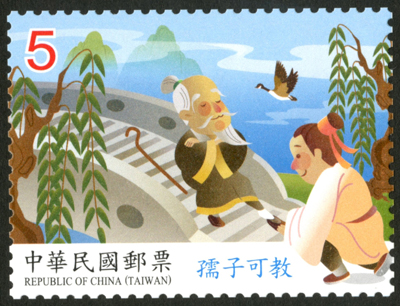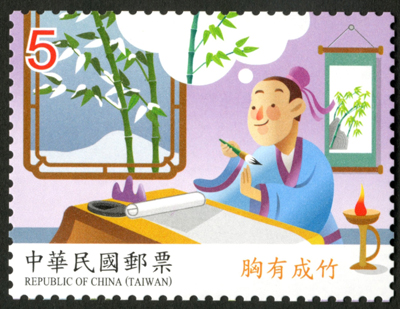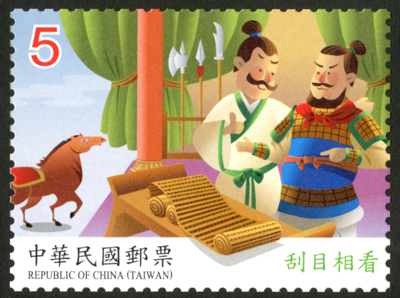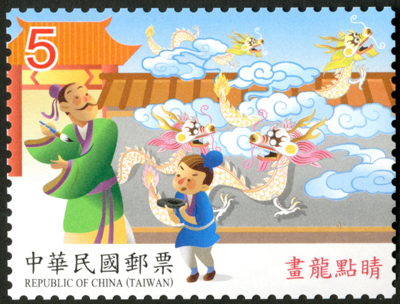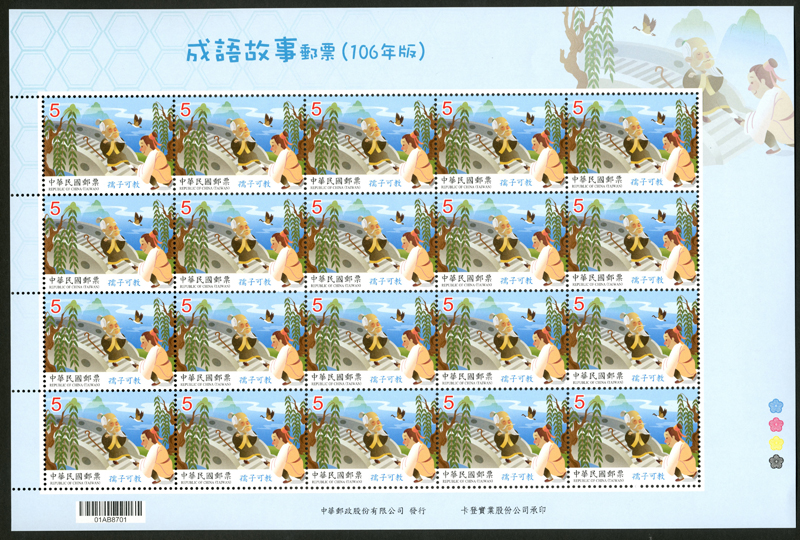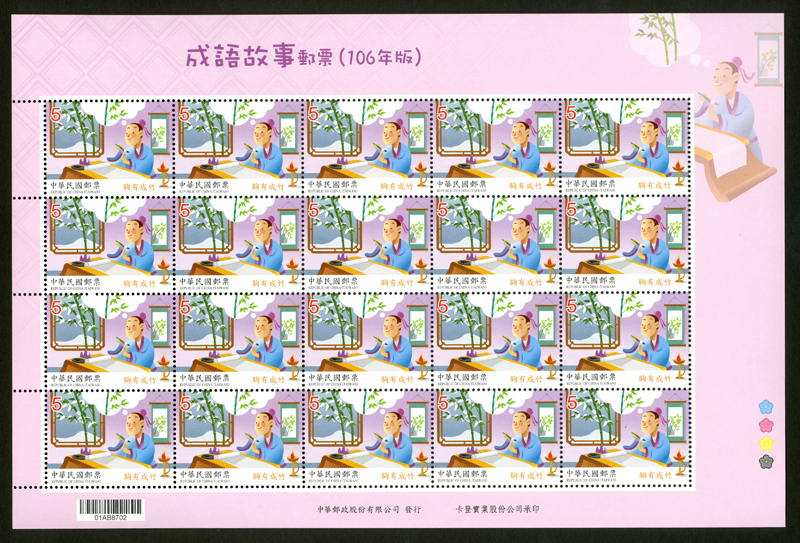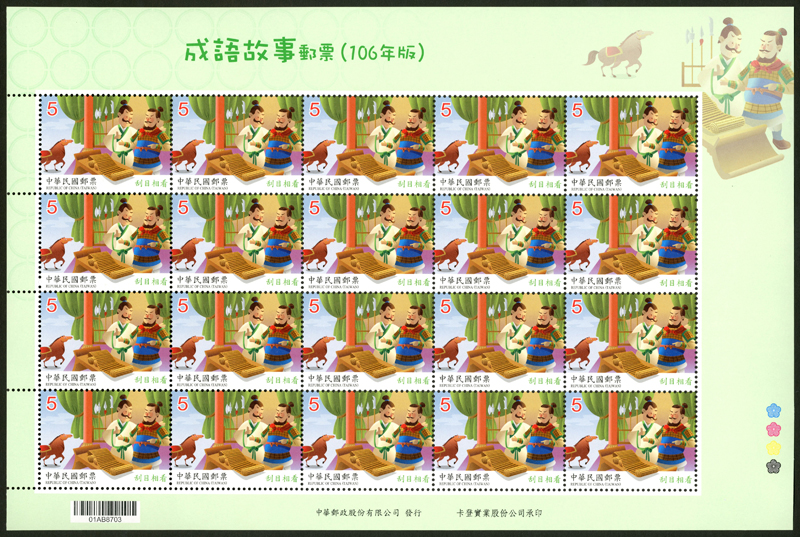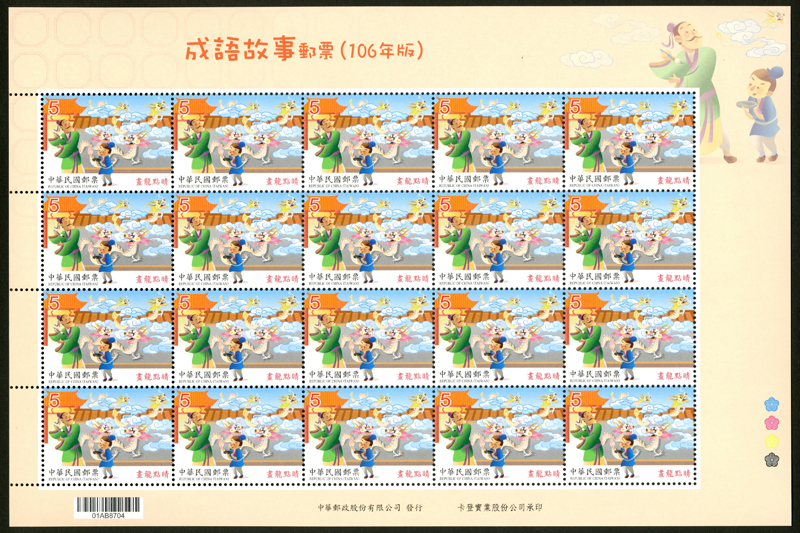Sp.652 Chinese Idiom Stories Postage Stamps (Issue of 2017)
| Stamp SN | D652 |
|---|---|
| Stamp Name | Sp.652 Chinese Idiom Stories Postage Stamps (Issue of 2017) |
| Stamp Cat Standard | Special Stamps |
| Stamp Cat | Tales, Literature, Literature |
| Issue date | 2017-05-10 |
| Suspersion date | |
| Annulment | |
| Dimension of stamps(mm.) | 40 × 30 (mm) |
| Size of souvenir Sheet (mm.) | |
| Printer | Cardon Enterprise Co., Ltd. |
| Drawer | |
| Designer | Tseng Kai-chih |
| Photographer | |
| Engraver | |
| Creative Director | |
| Sheet composition | 20(5 × 4) |
| Print color | Colorful |
| Process | Offset |
| Paper | Phosphorescent stamp paper |
| Back | |
| Perforation | 121/2 × 131/2 |
Following on from the Chinese Idiom Stories Postage Stamps issued on March 20, 2015, Chunghwa Post has commissioned a set of four more stamps depicting four other idioms. The designs follow:1. This infant can be taught (NT$5): One day Zhang Liang, who lived in the State of Hán during the Warring States Period (403-221 BCE), was walking across a bridge when an old man in shabby clothing deliberately dropped his shoe under the bridge and rudely ordered him to pick it up and put it back on his foot. Zhang Liang quietly obeyed. The old man said “this infant can be taught.” Later he tasted him many times and determined he was a person of outstanding talent. The saying has since been applied to many young people who can be educated.2. To hold bamboo in your breast (NT$5): Wen Tong (aka. Yu Ke) of the Northern Song (960-1127 AD) excelled at poetry and painting and was particularly famed for his paintings of bamboo. He loved bamboo so much he planted a whole forest of bamboo outside his window and minutely observed how it grew and changed. Before he painted bamboo he already had the entire shape in his breast and so he succeeded in expressing the spirit of bamboo to perfection. “To hold bamboo in your breast” means that you must concentrate on whatever you do.3. To rub your eyes and see anew (NT$5): Lü Meng, a general in the kingdom of Wu during the Three Kingdoms era (220-280 AD) had a hard childhood and rarely read books. Sun Quan, warlord of Wu, encouraged him many times to read books and so develop his education. He obeyed and began to study furiously. Once General Lu Su of Wu was inspecting the camp Lü Meng was responsible for and, after talking things over, acknowledged that Lü Meng was no longer the most ignorant person in Wu. Lü Meng replied, “Scholars who are apart for three days, will see each anew if they but rub their eyes.” It is later used to refer to looking at things with fresh eyes.4. To add the eyes to the dragon (NT$5). In the Record of Famous Artists, Zhang Yanyuan of the Tang (618-906 AD) notes that during the era of the Southern Dynasties (420-589 AD), in Liang, Zhang Sengyou once drew four dragons on the wall of Anle Temple in Jinling but did not give them eyes. He said, “If I paint their eyes, the dragons will fly away.” People thought he was fooling them and insisted he added the eyes. He did so for two of them, which in a crack of thunder broke the wall down and flew up to heaven on clouds. The expression to add the eyes to the dragon is later used to refer to adding a stroke in a key place in painting or writing such that the whole work will be more vibrant. It also means that in doing anything you have to grasp the essentials.
(1) First Day Cover: NT$2 apiece(2) Folder (with or without mount): NT$5 apiece(3) Loose-leaf album page: NT$8 apiece (4) Pre-cancelled FDC affixed with one NT$5-denominated stamps: NT$7 apiece(5) Pre-cancelled FDC affixed with a complete set of stamps: NT$22 apieceTo purchase the relative philatelic products, please go directly to the post office branches, or order on line at https://stamp.post.gov.tw.
LD016 Sika Deer Postage Label
Sp.635 Ancient Chinese Paintings from the National Palace Museum Postage Stamps: Immortal Blossoms of an Eternal Spring (II)
YOU MAY ALSO LIKE
By category
By Topic
By Year






